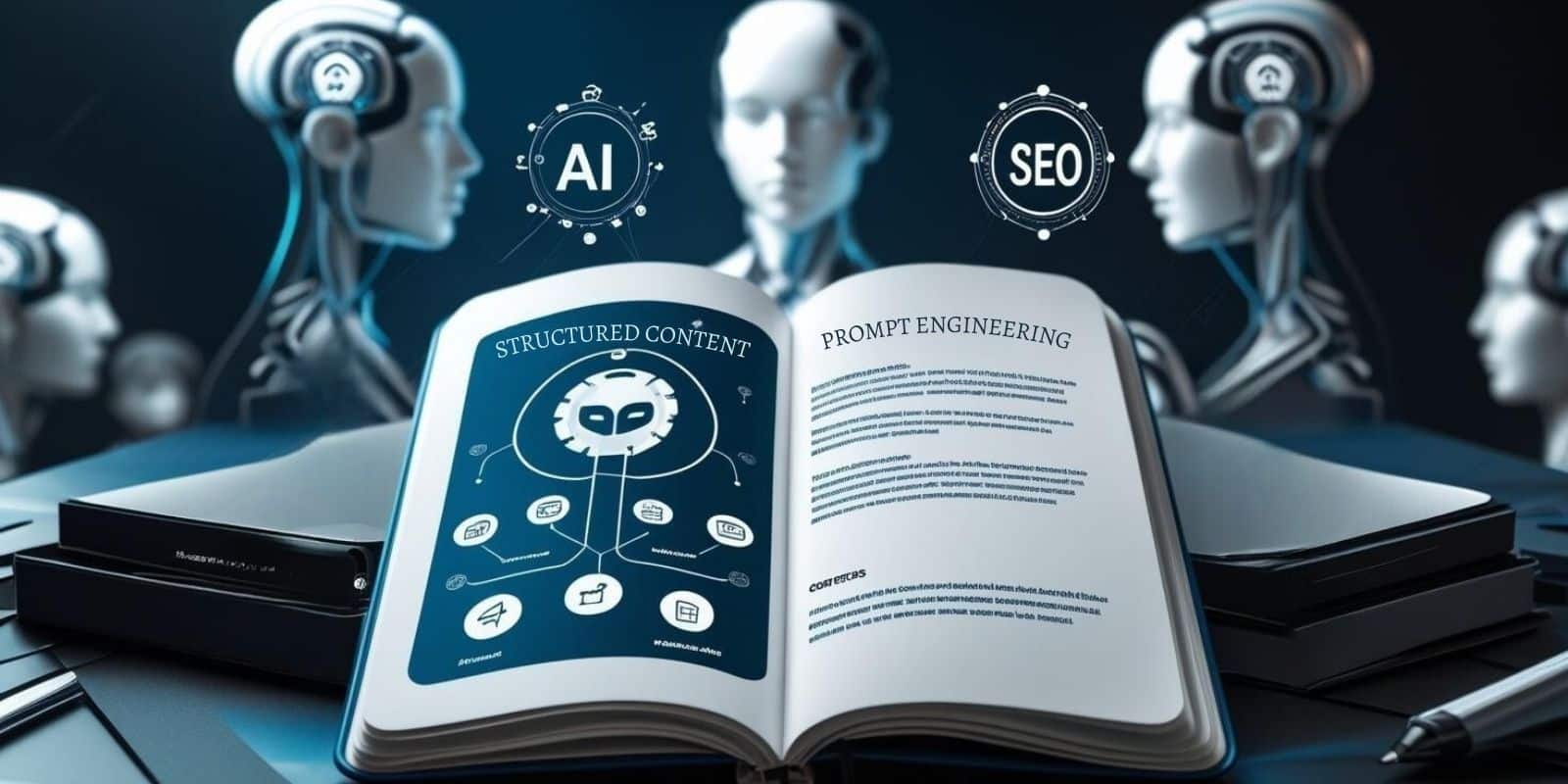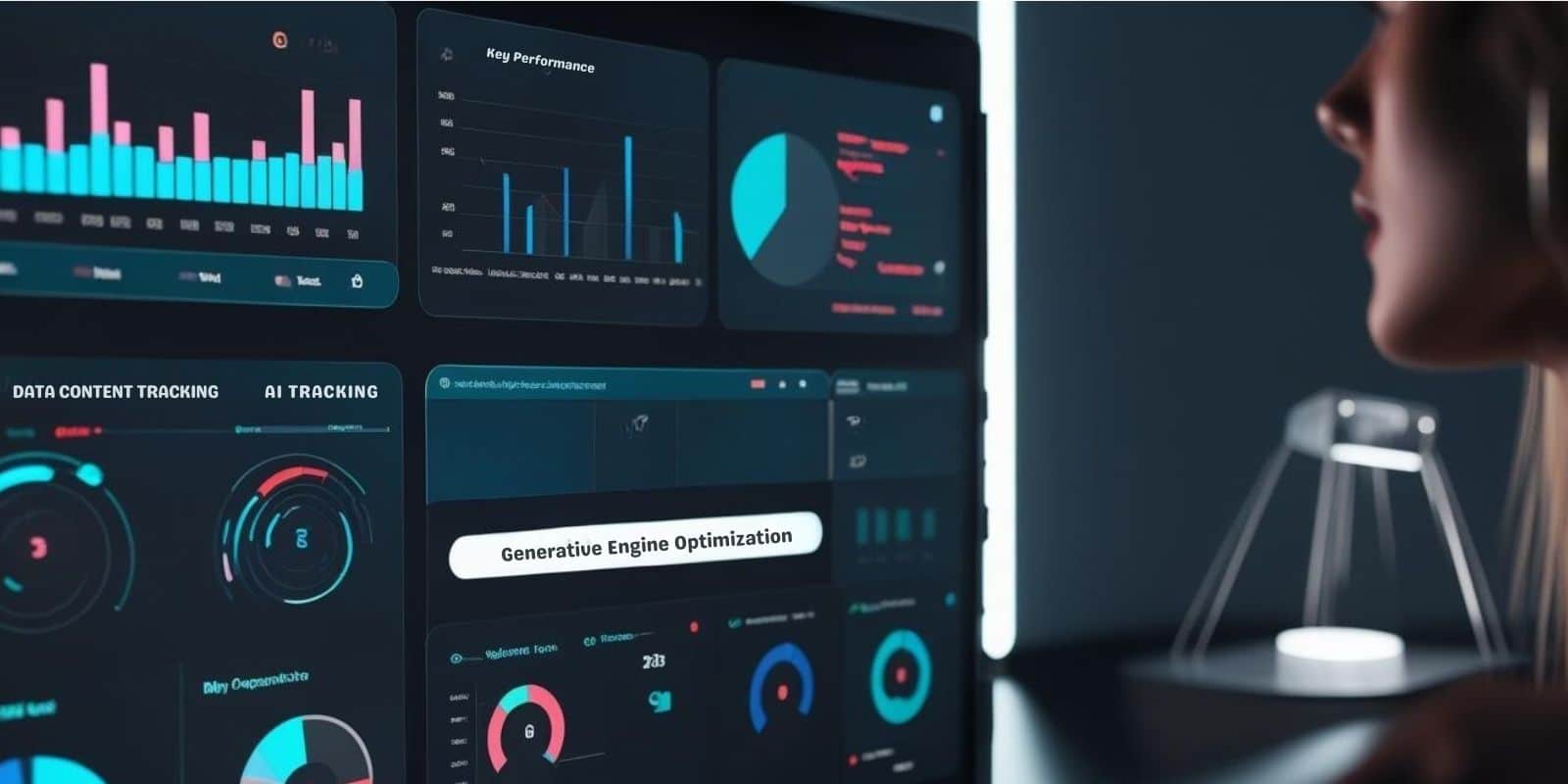Table of contents
The search engine world is undergoing a historic change: alongside Google, Bing & Co, AI-based search engines such as ChatGPT , Perplexity or You.com are increasingly coming to the fore. These new players are not only changing how content is found – but also what content is visible. Welcome to the world of AI SEO.
What is AI SEO anyway?
AI SEO describes the optimization of websites and content with the aim of becoming visible in AI-based search systems. In contrast to classic SEO, which relies heavily on keywords, technical optimization and backlinks, the focus of AI SEO is on:
- semantic relevance
- contextual depth
- structured knowledge transfer
- confidence signals ( EEAT ) and
- machine-readable representation
This is because AI search systems do not work with a classic ranking algorithm like Google, but instead pull content from accessible sources, evaluate its quality and use it to build direct answers to user queries.
How do AI search engines like ChatGPT & Perplexity work?
In contrast to traditional search engines, which provide results in the form of links, AI search engines answer your questions directly. The underlying technology is called Retrieval Augmented Generation (RAG). An AI model such as GPT-4 combines information from its training database with external sources to formulate a well-founded, up-to-date answer.
What does it mean to you?
If your website is easy to read, informative and trustworthy for AI systems, the chances that content from ChatGPT or Perplexity will be quoted or even fully integrated in their responses increase.
AI search engines like:
- ChatGPT (with browsing function)
- Perplexity.ai
- You.com
use among other things:
- publicly accessible websites,
- editorial content with high authority,
- structured data such as FAQ markups,
- and sources with a strong semantic reference to the user question
Ranking factors for AI search engines
Although there are no official “ranking factors” as with Google, Ki systems evaluate content according to other criteria. The most important ranking factors for AI search engines are
1. semantic depth and contextual understanding
AI does not search for individual keywords, but for contextually appropriate content that fully answers a question. The better your text matches the search intention, the higher the relevance.
2. EEAT - Pericia, Experiencia, Autoridad, Confianza
AI models in particular attach great importance to trust signals:
- Is there a clear author?
- Is specialist knowledge imparted?
- Is the source reputable and well connected?
- Is it updated regularly?
3. structured content
AI loves structured data:
- HTML logic with clear H1-H6 structures
- FAQ-Markup
- Tables of contents
- Bullet points and subheadings
4. citation ability
Perplexity & Co display source references directly in their answers. This only works if your content is clear, precise and citable. Long continuous texts without clear statements fail. ( More on citable writing )
5. technical readability
AI crawls websites like a browser – slow loading times, unclear URL structures or a lack of mobile design have a negative impact.
AI search engine evaluation: How AI perceives your website
AI does not evaluate websites like a bot, but like an extremely well-read human . It’s not just about whether content is correct – but how helpful, credible and relevant it is in the context of the user’s question.
What is included in the AI search engine rating?
- Content quality : Is the depth of content right? Is a topic really penetrated or only touched on superficially?
- Structure & readability : Is the content clearly structured? Are there paragraphs, subheadings, visual support?
- Linking & context : Is the content integrated into a thematic structure (e.g. Pillar Pages , Wiki )?
- Actuality : When was the article last revised?
- Authority : How established is the domain in its subject area?
Specific tips for more visibility in AI search engines
Now it’s getting practical. How to optimize your content specifically for AI search engines.
1. work with clear question-answer structures Use subheadings in question form (H2/H3) and answer them precisely directly below. This increases the chance that your answers will be accepted directly.
2. focus on semantic depth instead of keyword stuffing Deal intensively with user needs. Use related terms, explain connections and include related topics.
3. actively expand your Pillar Pages & Wiki AI recognizes thematic hubs. Your pillar pages on SEO and content are worth their weight in gold – link them specifically, include FAQs there and keep them up to date.
4. use structured data (schema markup) FAQPage, article, person – anything that makes your content easier for machines to interpret increases the chances of visibility
5. present your expertise visibly Showcase authors, link to social profiles, publish case studies or success stories. AI prefers real people with real experience.

Outlook: How is AI SEO developing?
Development is rapid – and you are well advised to invest in AI SEO now. The most important trends:
- In future, Google AI Overviews will display central content directly in the SERPs – with answers from sources like yours.
- ChatGPT plugins & browsing rely on real-time data – top content has a great chance of being cited here.
- Perplexity & Co are growing rapidly – those who optimize now will benefit from fires mover effects.
My conclusion for you: Actively tackle AI SEO now
AI SEO is not a “nice to have”, but will become a decisive factor for visibility in the coming years. Traditional SEO remains important – but those who do not optimize their content for AI-supported search systems will lose reach, relevance and trust.
Use your existing content ecosystem (pillar pages, wiki, services) to visibly expand your authority and create content that is really helpful – then you will also be at the forefront of the AI world.

Ready for the next step? Then analyze your content now from the perspective of AI SEO – and optimize for the search systems of the future.
Frequently asked questions about Ki-SEO
What is the difference between SEO and AI SEO?
SEO optimized for search engines like Google. AI-SEO optimized for systems such as ChatGPT or Perplexity, which process and evaluate content directly – and apply different criteria.
Do I need to revise my existing content?
Not necessarily – but you should analyze it: Is it clearly structured? Does it offer real added value? Is it machine-readable? If not, it’s worth updating.
How do I find out if my content appears in ChatGPT?
Use tools such as “ChatGPT with browsing” or ask ChatGPT directly for sources. Perplexity also openly displays citations – this is a good touchstone.
Which tools help with optimization for AI search engines?
- Frase.io (for question structure)
- SurferSEO (for semantic optimization)
- Schema.org generators (for structured data)
- ChatGPT (for prompt ideas and analyses)
Will classic SEO be replaced by Ki-SEO?
No, but supplemented. Anyone who is smart today combines both: technical SEO for Google, semantic and structured SEO for AI search systems.
About the author:
My name is Isabel Unger, I am an independent digital strategist with a clear focus: visibility for the self-employed & small businesses. My heart beats for SEO, content, structure – and for explaining complex things in a way that makes them understandable and feasible.
On ixtreme.online I share my knowledge, my experience and a lot of plain language – without any technical gobbledygook.

Make Google your best friend
Find out in my big SEO guide how you can be found online as a self-employed person – clearly, comprehensibly and without technical stress.







